Louisville Water Company Case Study
A descriptive paragraph that tells clients how good you are and proves that you are the best choice that they’ve made.
Redesigning for Functionality and Manufacturability
Louisville Water Company is a water treatment and distribution company that services more than 1 million people in multiple Kentucky counties. The company is known for producing high quality, great-tasting water branded as Louisville pure tap™.
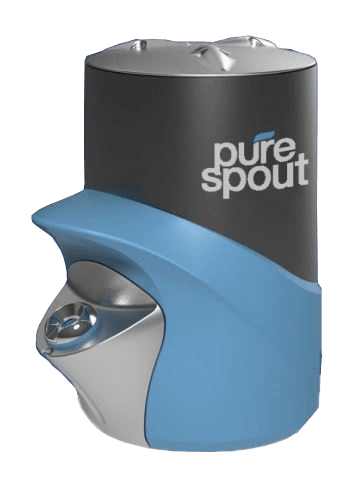
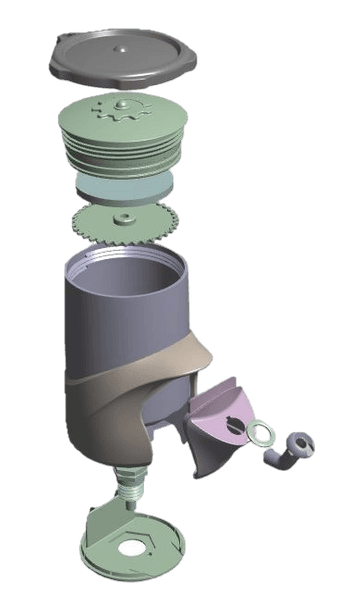
Challenge
Louisville Water Company prides itself on making clean, healthy drinking water accessible to all. The company’s treatment plants are among North America’s most highly rated facilities. The water is clean when it leaves the treatment plant, but between the plant and its destination, it is likely to pick up harmful chemicals or minerals along the way due to old plumbing. Materials used in plumbing up until the most recent decade are likely to leach lead into the water, which is harmful to a consumer’s health over a prolonged period of exposure.
Due to the health risks of lead-contaminated water, Louisville Water Company sought a solution for keeping their water lead-free. Schools, government facilities, and other high-traffic public buildings were the main priority for this solution. However, the answer could not be to replace all the old plumbing in these buildings since the time, materials, and manpower needed to do so would amount to thousands of dollars just for one building. Instead, Louisville Water Company wanted a quick, simple solution, and they soon developed the idea for PureSpout™ – a water filtration device that could be mounted onto an existing spout of an average drinking fountain. The immediate plan was to use the filter in schools where many young children use the same fountain.
The original design that Louisville Water Company created had multiple areas of concern, including issues with functionality and manufacturability. Ultimately, the University of Louisville referred them to 3 Space, and we were able to help them by delivering a ground-up redesign.
Solution
Utilizing our team of engineers, multiple in-house 3D printing technologies, and business connections, 3 Space was able to fulfill all of Louisville Water Company’s needs for the filter redesign. We successfully designed the product to be compact and easy to use. We made our own prototypes in-house, allowing for a more rapid product development process. Once the design was finalized, it could then be sent to a third party injection molding company. 3 Space would handle assembly and shipping.
Solution
The goal of the filter’s redesign was to improve its functionality and make it easy to manufacture via injection molding. But, this was not so easily accomplished. Louisville Water Company wished for the device’s footprint to be small so it would not hinder the use of the drinking fountain, which meant the multiple components of a water filter, mount, and spout had to fit together perfectly to not take up too much space. Not only that, but the desired aesthetic was to be a design that mimicked water – an organic, flowing form.
With all this in mind, our engineers worked hard to satisfy all of Louisville Water Company’s needs. The filter components were designed to stack on top of one another to give the device a cylindrical shape. The replaceable filter cartridge inside the device’s body could be accessed by removing the tamper-proof lid on the top, making upkeep quick and easy. The filter was made both aesthetically pleasing and safe by the addition of an overmolded rubber outside that curved over the top of the spout area. This gave it a flowing look while also ensuring someone would not injure themselves if they bumped into the unit while taking a drink.
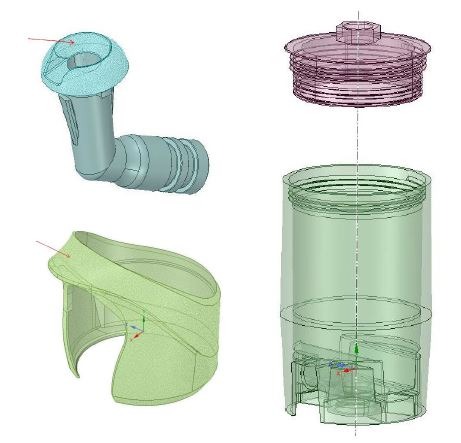
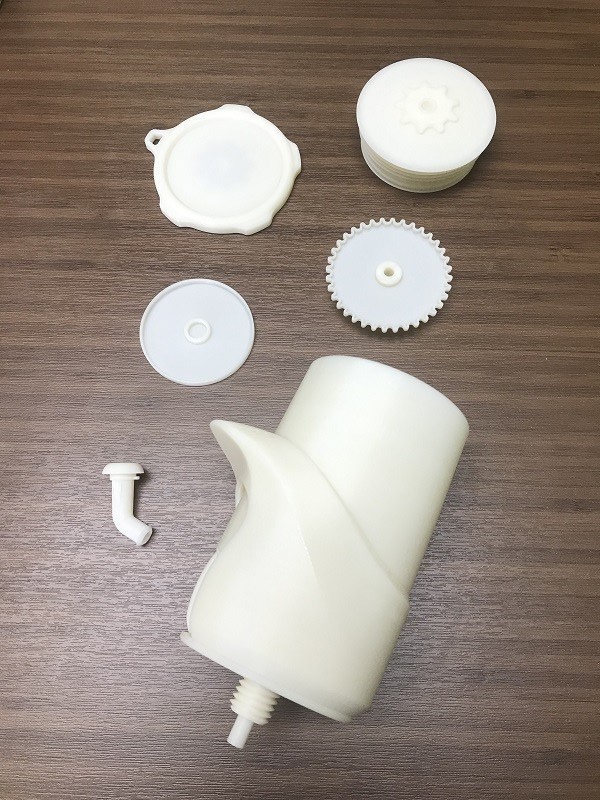
Prototyping with 3D Printing
The design required many prototype iterations to perfect. With our in-house 3D printers, we were able to produce our prototypes on-demand. Pieces of the assembly or the whole unit could be printed and in hand within hours, which allowed us to accelerate the design process by making immediate revisions since there was no outsourcing to a third party vendor.
The 3D printed prototypes allowed us to test the assembly and functionality of the design. We used a combination of FDM, PolyJet, and MultiJet printers to make and test different pieces. Each of these 3D printing technologies has its strengths and weaknesses, which is why we used all three to make sure our tests were conducted in the best way. Overall, we used the three technologies as follows:
FDM provided a test of rigidity and durability. We printed the unit in an ABS similar to the type that would be used to make the final product in injection molding.
PolyJet is capable of mixing resins to mimic almost any grade of rubber. We used this technology to test the hardness of the overmolded section on the exterior of the unit.
PolyJet is capable of mixing resins to mimic almost any grade of rubber. We used this technology to test the hardness of the overmolded section on the exterior of the unit.
We tested the filter device in-house using a water fountain that Louisville Water Company provided. Tests included ensuring an uninterrupted flow, endurance of water pressure, proper fit, and more. Once the design passed all tests, the design was ready for manufacturing.
Manufacturing & Assembly
Louisville Water Company wanted to produce the filter device locally, and we were able to refer them to a few nearby vendors to make their selection. We also acted as an advisor for injection molding materials.
The final design featured multiple injection molded parts made from an antimicrobial ABS plastic, including the main body and most internal components. The overmolded portion was produced from standard TPU rubber. In addition to these molded parts, some metal screws, nuts, and washers necessary to the assembly and mounting of the unit were made from brass, which further ensured that the water would be lead-free when exiting the spout.
Upon completion of injection molding the pieces, the filter device could be assembled and shipped to the place of installation.
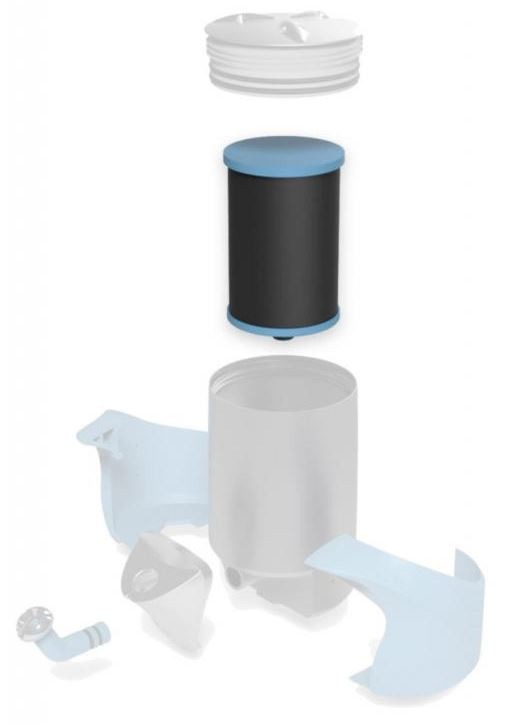
Results
3 Space provided product development services to redesign the ReachaBowl for better manufacturability while retaining the creator’s design intent.
3D scanning was used to ensure that the stainless steel bowls fit perfectly in the base for easy installation and removal as needed.
With thorough communication and partnership with an overseas vendor, 3 Space produced an unblemished product that featured two sizes, two colors, two textures, multiple connecting components, and an overmolded handle for a non-slip grip.
3 Space processed orders from online, allowing for drop shipping to customers.
Future
PureSpout™ is currently in its beta testing phase. After this stage, the device will become available for purchase. 3 Space will handle assembly, packaging, and shipping of the units.
